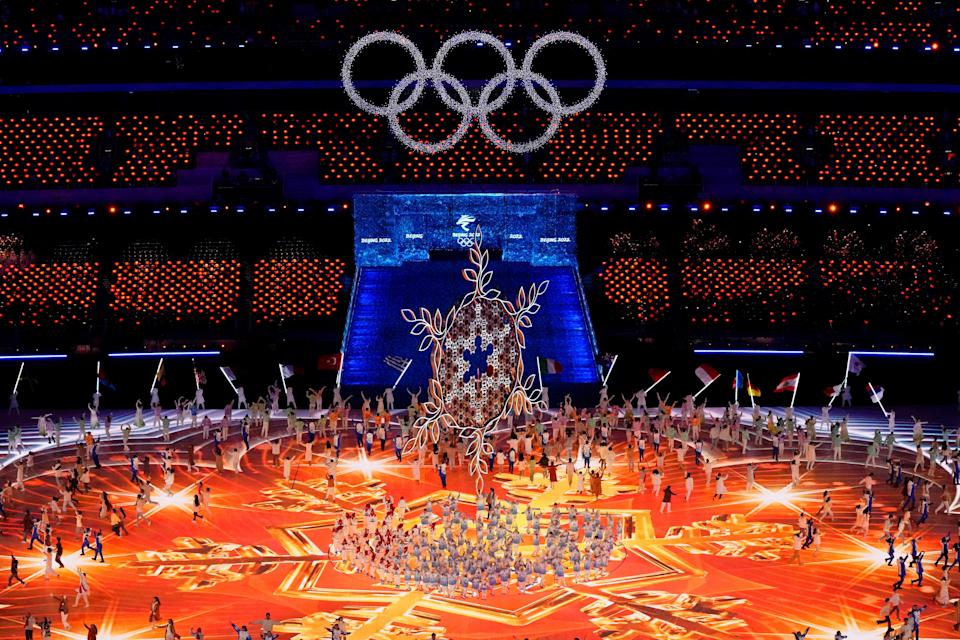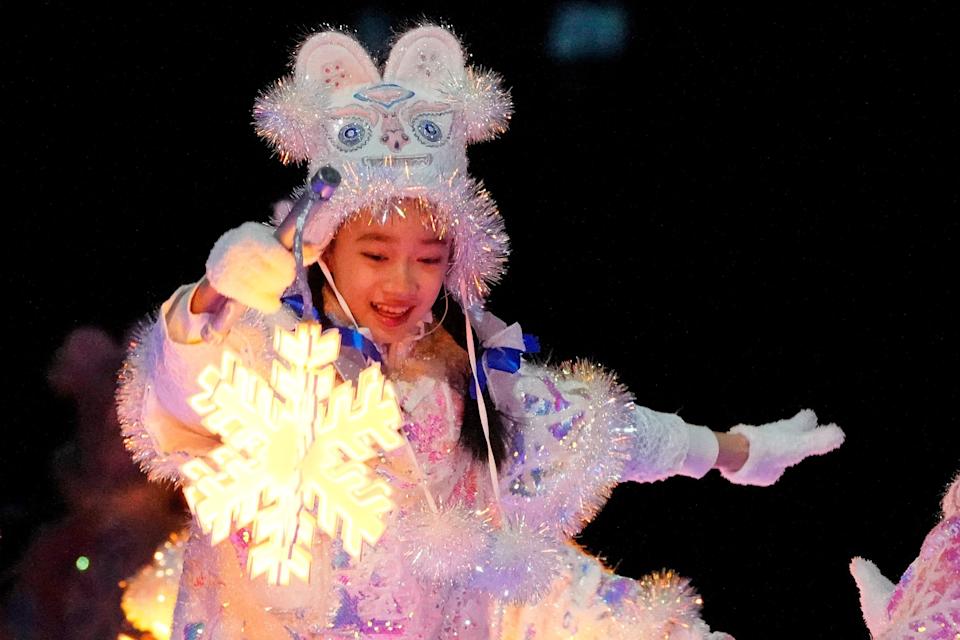BEIJING – They have come to an end, the strangest, most controversial, most unwelcoming Olympic Games of our lifetime.
Walled off from the outside world in order to succeed, accompanied every step of the way by questions about China’s human rights abuses, the 2022 Beijing Winter Olympic Games ended their bizarre 17-day run on a frigid Sunday night at the Birds Nest, China’s National Stadium.
We have never seen anything quite like these Olympics. They will be deemed a success only because they were not an abject failure. The closed-loop fortress worked; COVID-19 did not explode and run rampant through the Games.
But at what cost? These were an Olympics without personality, untouchable by design. The purpose of an Olympics is to unite the athletes, to extend into the community, to metaphorically bring the world closer.
There was no chance of that here. This wasn’t a joyous festival of sport; this was a forbidding fortress of separation. Gates slammed shut every minute of every day, keeping anyone associated with the Olympics away from everyone else in Beijing. It had to be, but it was jarring, and won’t soon be forgotten.
MEDAL COUNT: Who finished atop the Olympics medal count? Here’s how each country performed.
CHINA GOT WHAT IT WANTED: A doping scandal helped
AT GAMES WITH NOTHING POSSIBLE: US athletes showed obstacles can be overcome


In this sense, these were the non-Olympic Olympics. There were times they felt more like a big multi-sport world championships, detached and unconnected. While there were momentous triumphs, heartbreak stole the show: from Mikaela Shiffrin’s star-crossed ski slopes to Kamila Valieva’s unrelenting sheet of ice, from the devastating quarantine isolation of American athletes Elana Meyers Taylor and Vincent Zhou to an empty medal stand where team figure skaters should have stood.
“We were celebrated back home but we weren’t celebrated here,” U.S. team figure skating co-captain Evan Bates lamented on Sunday, referring to the International Olympic Committee’s decision to keep the silver-medal-winning Americans and bronze medalist Japanese from receiving the medals they won nearly two weeks ago out of fear that the gold-medal-winning Russians will be disqualified due to Valieva’s positive drug test.
“This moment has now passed and this window is closing and people move on,” Bates said sadly. “To leave here without the Olympic medal that we won fairly is unbelievable. It’s unprecedented.”
What a fitting coda on Beijing’s Olympics, unprecedented in so many ways, and at times, just very sad.


Coming along six months after the Tokyo Summer Olympics, these Games were so much like those last year in Japan, forever altered by the pandemic, never reaching their potential. But the issues emanating from Beijing’s Olympics were far more serious, making the Tokyo Olympics look almost normal by comparison.
The troubling saga of three-time Olympian Peng Shuai served as a prelude to these Games, then merged with them when she was paraded from event to event by the IOC as if to say all was well, whitewashing the world’s current biggest #MeToo case.
These Games offered more questions than answers, more uncertainty than resolution. What becomes of Valieva, an athlete who should have transcended the Olympics, but instead left broken under the weight of their pressure? Who ends up winning the gold medal in team figure skating, and when will they win it? Will Russia and its state-sponsored doping system ever be taught a lesson? How does Shiffrin move on from here?
To be sure, all was not lost, perhaps best exhibited at the closing ceremony by Meyers Taylor robustly waving the rippling U.S. flag as she entered the massive stadium. She was supposed to carry the flag in the opening ceremony but was in COVID isolation instead. After getting out, then winning silver and bronze here, she got another chance.
Russia seems to get more chances than anyone, so it was fitting that the last medal ceremony of these Games, held on the floor of the stadium, was for a Russian cross-country skiing gold medalist. The Russian flag wasn’t supposed to be here, but there it was on his detachable armband. The irony was lost on no one that the nation the IOC officially didn’t allow to be at these Games was the one holding the final celebration.
That’s Beijing 2022 in a nutshell. Nothing was quite right; everything seemed a bit off. One big cautionary tale, that’s what it was.
This article originally appeared on USA TODAY: 2022 Winter Olympics go down as most unwelcoming, controversial
